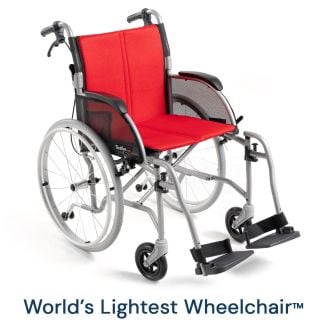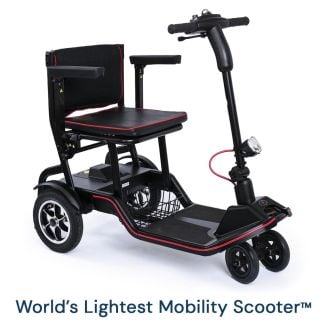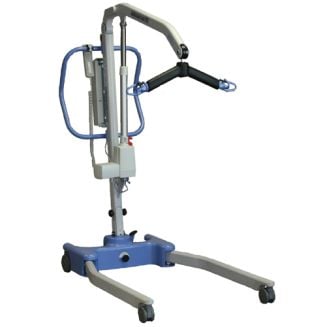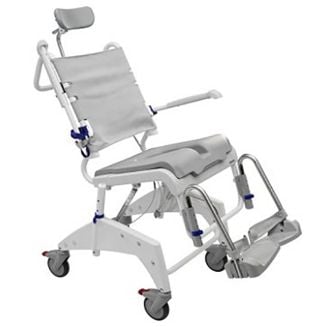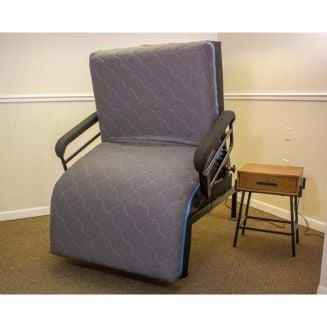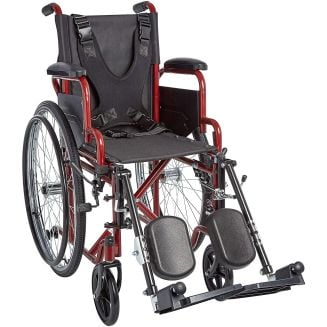1800Wheelchair.com Scholarship Fund Winning Essay for Winter 2009/2010
Our Question: As a student, what advice would you give policy makers during this season of health reform? Feel free to address boad issues or specific topics, real world stories are welcome.
Benjamin Snow
Arizona State University

The Importance of Universal Healthcare for All
I am a 22-year-old college junior, earning good grades and working hard to build a foundation for a bright future. But my future may be in jeopardy because of our nation’s healthcare situation.
I have a disability—a “pre-existing condition” in insurance jargon. I use a power wheelchair and other assistive technology devices. I’ve enjoyed good health all my life, but because I have cerebral palsy, health insurance companies say I am “uninsurable.” Fortunately, my state provides an “uninsurable pool” for people like myself.
My wheelchair is customized for my body and my needs, allowing me to attend college, take care of myself, and be more independent. I’m grateful for the technology that allows me to live a life of my own choosing, just like people who do not have disabilities.
But when insurance companies get involved with my life, I lose control of my independence. The technology in my wheelchair is life-saving, and it’s expensive. Two years ago, my state-sponsored insurance paid for my wheelchair. But the state recently changed its plan, reducing coverage for “durable medical equipment”—like my wheelchair—to $3,000 per year. That’s less than the cost of replacing one of my wheelchair’s motors!
I depend on my power wheelchair to help me be productive and independent; I’m unable to push myself in a manual wheelchair. I intend to have a professional career and be a responsible, self-reliant, tax-paying citizen. But right now, as a student, there is no way I could pay for the wheelchair that I need. There is no other insurance possibility for me. When this wheelchair needs replacing (they usually last five to seven years), I don’t know how I’m going to pay for it.
There is currently only one alternative for people with disabilities who are denied “normal” health insurance, and it’s a frightening alternative to me: becoming dependent on government entitlements via Supplemental Security Income (SSI), based on having a low income, which, in turn, qualifies a person for Medicaid. There are many children and adults with disabilities who may not actually need the approximately $600 per month in SSI, but they do need Medicaid, so they (or their parents, in the case of children) may choose to be unemployed or underemployed just so they can qualify for Medicaid. Most adult SSI recipients live below the poverty line, and under SSI regulations, they’re unable to maintain more than $2,000 in assets. This is not the path I want to take.
If I no longer had coverage from my state’s “uninsurable pool” and/or if it no longer paid for wheelchairs, I might be “forced” into becoming an SSI recipient, just so that I could get Medicaid coverage. Medicaid would probably pay for a manual wheelchair, but since I cannot push myself and/or take care of myself like I do now, I would most likely become dependent on disability human services. In addition, because of the “unemployable” criteria of SSI, I would not qualify for college loans and my education would come to a screeching halt. My life would change overnight: instead of living up to my potential of being a hard-working, tax-paying employee, I would become an unemployed tax-user, dependent on government entitlements. This is a dismal situation, but it’s the norm for many. I don’t want it to become the norm for me.
Universal healthcare for all can do more than simply provide insurance. It can enable people with disabilities to move from poverty and dependence on government entitlements to greater independence as productive members of society . . . to live their American Dream!
